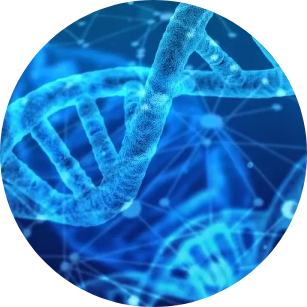Healthcare

Healthcare
The Role of AI in the Healthcare Industry
Artificial Intelligence (AI) is revolutionizing the healthcare industry by augmenting clinical decision support, improving operational efficiencies, enhancing diagnostics, and accelerating drug discovery. AI-powered solutions leverage machine learning, natural language processing (NLP), and predictive analytics to help healthcare providers make data-driven decisions, ultimately improving patient outcomes and reducing costs. By integrating AI into various aspects of healthcare, organizations can streamline workflows, optimize resource allocation, and enhance the quality of care.
One of the key roles of AI in healthcare is clinical decision support. AI-driven algorithms analyze vast amounts of patient data, medical literature, and real-time clinical inputs to assist physicians in making more accurate diagnoses and treatment plans. These systems help identify patterns in medical imaging, laboratory results, and patient histories, enabling doctors to detect diseases at earlier stages. AI-powered tools also provide evidence-based treatment recommendations, reducing diagnostic errors and supporting precision medicine tailored to individual patients.
AI also significantly enhances operational efficiencies within healthcare institutions. Hospitals and clinics use AI-powered automation to optimize scheduling, manage patient flow, and reduce administrative burdens. AI-driven virtual assistants and chatbots streamline appointment booking, patient inquiries, and follow-ups, freeing up medical staff to focus on more critical tasks. Predictive analytics further help healthcare providers forecast patient admissions, manage hospital resources efficiently, and prevent bottlenecks in care delivery.
In the field of diagnostics, AI is proving to be a game-changer. AI-driven imaging technologies can analyze medical scans such as X-rays, MRIs, and CT scans with high accuracy, assisting radiologists in identifying abnormalities like tumors, fractures, and infections. AI-powered pathology tools help detect diseases such as cancer, cardiovascular conditions, and neurological disorders with greater precision, improving early detection and treatment outcomes.
AI is also transforming drug discovery and development by accelerating research processes and reducing costs. Machine learning models analyze complex biological data to identify potential drug candidates, predict drug interactions, and optimize clinical trials. AI-driven drug discovery platforms help pharmaceutical companies develop new treatments faster by simulating molecular interactions and predicting drug efficacy, significantly cutting down the time required for bringing new drugs to market.
Overall, AI is playing a crucial role in reshaping the healthcare industry, providing physicians with enhanced decision-making tools, improving operational efficiency, and driving innovation in diagnostics and drug development. As AI technology continues to evolve, its integration into healthcare will further enhance patient care, reduce costs, and transform the way medical services are delivered.
